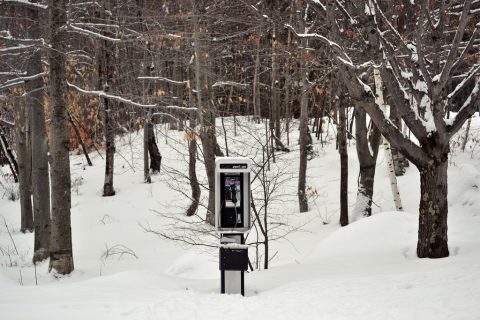How did you first find your way into “Pastor Bob’s Picnic”? Was it an image that struck you? The character of Pastor Bob himself? A voice? Is this typical for you in your other writing?
The character struck me. We have many street preachers here in Chicago—some preach on the trains, some on street corners, some have recordings they play from loudspeakers on their decorated vans. I’ve always wondered what their lives were like, what the backstory was on their faith, their urgency, their hope or lack of it. It does seem desperate somehow to stand on a Chicago corner on a windy sub-zero day and proclaim your faith to people who may already have their own, or who have decided to look elsewhere for comfort.
As for my writing in general—yes, I’m usually driven by a character I just have to talk to, understand, and follow. And yes, my own experiences sometimes provide material. In this case, I was once nearly drowned by a dog who jumped into a lake after me and panicked. Wet fur, paws clawing, water driving me downward: I never forgot it.
This story seems to be not only about Pastor Bob’s crisis of religious faith, but also his crisis of faith in himself and his place in the world: He’s on the verge of giving up hope. And yet I was so moved by the little glimmers of hope he holds on to, in spite of everything. How did you balance the hope with the mounting hopelessness of Pastor Bob, particularly in such a small space?
I think Pastor Bob loves people, whatever their quirks and failings, and therein lies his intermittent hope and faith. I don’t think he knows this about himself. I think he’s too concerned about feedback: what other people and his God think about his lot in life, his dismal little congregation. It’s almost as if once he stops worrying, once he stops pursuing and failing the perfection that pastoring seems to require, he finds a way to be who he actually is: strong, hopeful, worthy, and forgiving of himself.
My guess is that Pastor Bob’s hope and hopelessness fit in such a small story because they’re fighting for his heart, and that’s a pretty small space.
Do you find yourself returning to any specific images or themes again and again in your writing? Do you have obsessions you can’t seem to escape?
I can’t seem to escape the question of mortality—not death itself, but the hovering, inevitable fact of an end to the stories we see as our lives. How does this fact of mortality affect this woman’s choices and that guy’s feelings?
Also: I’m fascinated by self-realization and the lack of it. I love to think about what people think they know about themselves and don’t. And I have to admit, there’s often a lot of water.
The POV of this story was interesting. It’s mostly a close third person that occasionally (but rarely) flits into the omniscient. For instance, there’s the moment with Melba “secretly” sharing her husband’s cynicism about the people in the outdoor congregations. Later, we get Tyson’s brief backstory, which we discover Pastor Bob isn’t privy to. Can you talk a little bit about this as a stylistic choice?
I wanted to illuminate the subtleties of Pastor Bob’s marriage, as well as the ironic consequences of his admirable, moral posture of not asking questions, which means he doesn’t know that he’s jumping into dangerous waters after a man who is a more competent swimmer than he is. But I didn’t want the POV to feel omniscient in the grand sense, as if written from an all-knowing god, which would have killed the story (given that Pastor Bob is wondering if there is one). So, I imagined a helicopter hovering and hearing some other characters’ thoughts and backstories. Once Melba’s thoughts violate Pastor Bob’s POV, that gave me license to do the same with Tyson. So yes, it was a stylistic choice, and it was tricky to execute.
(I think it’s cool that you caught it.)
Did you conceive of this story as flash fiction? As a genre, what can flash fiction do that other genres can’t do? Why are you drawn to it?
I thought of it as flash immediately: a man with a spiritual problem and a series of emotional losses, preaching to people who are themselves characterized by loss on an empty beach. His mantra has always been persist, persist. This is a moment ripe for change. This is also a moment to ask: Where does hope live?
Flash allows a story arc to be small and compact while sparking feelings and implications that are deep and far reaching. And flash does this without the constructed manners and intricacies of poetry. I love the fluidity of the form—fast and fierce, rolling and meditative, dry and observational, and yet available in a read or two. I think that’s an extraordinary gift to give a reader: accessible breadth, depth, character, and story in a few minutes. Flash is a handshake that means something, a brief connection whose meaning has the potential to live long past its official expiration date.



 The core workshop of SmokeLong Fitness is all in writing, so you can take part from anywhere at anytime. We are excited about creating a supportive, consistent and structured environment for flash writers to work on their craft in a community. We are thrilled and proud to say that our workshop participants have won, placed, or been listed in every major flash competition. Community works.
The core workshop of SmokeLong Fitness is all in writing, so you can take part from anywhere at anytime. We are excited about creating a supportive, consistent and structured environment for flash writers to work on their craft in a community. We are thrilled and proud to say that our workshop participants have won, placed, or been listed in every major flash competition. Community works.